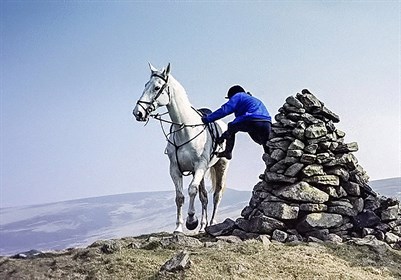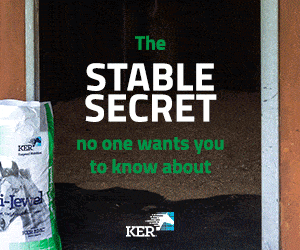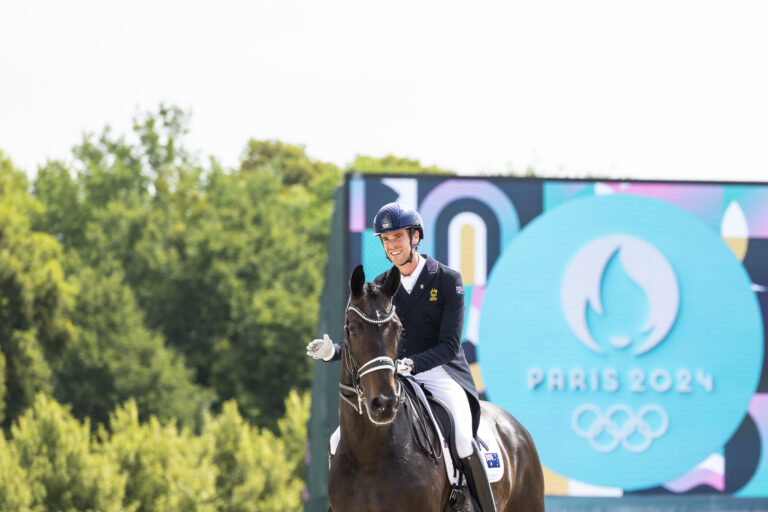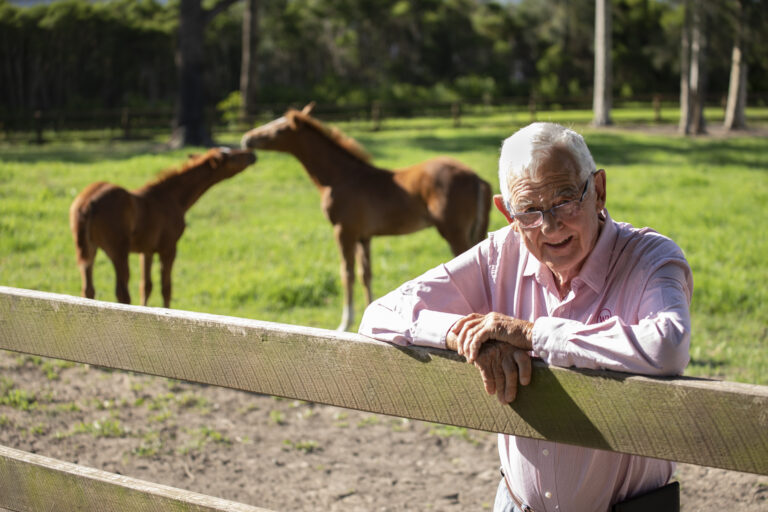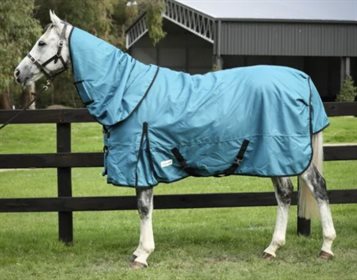This article has appeared previously with Equestrian Life. To see what is in our latest issue, please click here.
Some of us need all the help we can get to mount our horse!
© Walter Baxter
By Kerry Mack
I am a great believer in making use of learning theory in horse training. Also I am a great believer in training horses in a way they they are relaxed. I hate adrenaline in training. Predator animals such as dogs learn well when excited, when they have a bit of adrenaline on board. We naturally understand this tend to train dogs with vigorous signals and rewards. However prey animals such as horses have brains that respond to stress with flight. When they are running away they do not need to learn new things, just run. So excited horses run, they don’t think. Even frightened or extremely stressed or traumatised humans will switch off that part of our brains that are responsible for analytic thought, language etc. We switch off our frontal lobes when stressed, to aid in our fight and flight responses.
Let’s consider mounting the horse. Young horses get used to this strange experience in their breaking in by habituating to the rider getting on. Habituation is just getting used to pressure, learning to ignore it. This is a good start, but I like my youngsters to actually relax when you go to get on. I want them to stand still at the mounting block and not stress about what comes next. This takes training and time. Classical conditioning is the term for when we use a natural response and associate it with something new. Dogs will salivate when a bell rings if the bell is rings every time food is presented. The bell becomes a conditioned stimulus.
Horses will relax when they stand still. Horses will relax when someone (horse or human) scratches them in those hard to get places such as the wither or croup. So if you stand up at the mounting block and scratch them on the wither or croup until they stand and enjoy it they will learn quickly to stand still. Any time he moves just stop scratching him, when he is still quickly start again. Try not to hold him strongly with the reins. Just suggest with the reins he stands. Tell him ‘stand’. Repeat it until he is relaxed and standing, his head lower, his jaw soft and possibly chewing. Then get on. Be patient and take time until he is relaxed.
When you are on again tell him to stand, scratch him, ask with the reins. He should learn to stand still until you ask him to move off with your legs. Don’t let him think that picking up the reins is a signal to move. He must wait until your legs go on. Take time. Do it this way every time you get on until he knows to wait and is relaxed about it. If he is recalcitrant or has learned to be tense when you get on get on and off a few times before you go anywhere, so he stops anticipating moving off straight away.
I think that this is very important because you are in control right from the beginning. He must not have free will in terms of choosing when he will move off, for example as soon as you are on and before you have asked him. He only has free will in that he chooses willingly to do what you ask because you train him to stand still using clear cues and classical conditioning. Of course some fairly dull or lazy horses want to stand still, but a willing forward moving horse will usually not want to stand still.
Invest time in starting well and in a way that you are in charge, but that he thinks its his idea.
Have fun!
Kerry
READ THE LATEST NEWS ARTICLES HERE

